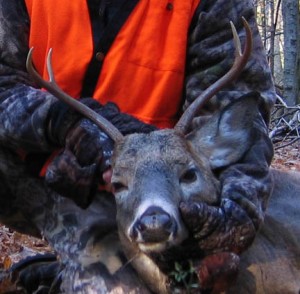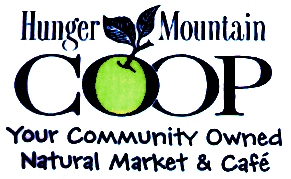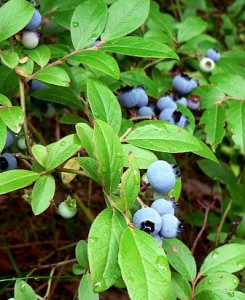Had I, he asked, ever wounded an animal but failed to kill and recover it? If so, how did I deal with that?
Tag: farmed animals
Eating strangers, Eating friends
Emotionally speaking, what are the differences between hunting wild animals and slaughtering domestic ones?
An open letter to food co-ops
Why don’t food co-ops start selling hunting and fishing licenses?
Meat and meaning (or, Hunting on the brain)
The past few months have been crazy. I had the final six chapters of my book to draft. And I had a thesis to write.
Accounting for taste: What’s with “gamey”?
 Just before the New Year, I was talking with a hunter I know. He mentioned how much he enjoys preparing venison for non-hunters. So often, they’re surprised by how good it tastes. Only one thing bothers him. After they declare it to be delicious, they’ll say, “I expected it to be gamey.”
Just before the New Year, I was talking with a hunter I know. He mentioned how much he enjoys preparing venison for non-hunters. So often, they’re surprised by how good it tastes. Only one thing bothers him. After they declare it to be delicious, they’ll say, “I expected it to be gamey.”
“I’m so tired of people saying they expect it to be ‘gamey,’” he told me. “Venison is about the nicest meat I can imagine.”
A few nights later, a couple of friends were here at our place for dinner. Among the dishes on the table was a bowl of venison meatballs. I told one of our guests how fond Cath is of that particular recipe. “Oh,” he asked, “does it help get the gamey flavor out?”
The gamey flavor. What is with that?
Is this notion stuck in people’s heads because they’re freaked out by the idea of eating wild animals? Is it rooted in cultural and economic history, in the feeling that game-consumption is a sign of poverty?
Are people speaking from experience? Have they been subjected to horrendous cooking? Have they been traumatized by eating venison that was poorly processed, or was “aged” until it turned green? (For a not-so-scientific investigation into the effects of such handling, see “The Taste Controversy Ends” from the U.S. Venison Council.)
I don’t know. Maybe it’s just me. Maybe, in my decade as a vegan, I simply forgot what domestic meat tastes like.
Cath and I do eat plenty of local chicken and turkey, but when it comes to red meat, venison is the only flavor I really know. When the weather warms, I’ll be slicing thin strips of backstrap, sautéing them lightly, and serving them over fresh salad greens from the garden. Cooking venison this way doesn’t get rid of any of the flavor, thankfully.
Maybe there’s nothing wrong with beef, but I expect it might taste farmy.
© 2011 Tovar Cerulli
Adult-onset hunting: Know the signs
 Experts have not yet determined whether Adult-Onset Hunting™ (AOH) is an epidemic. What they do know is that thousands of people are afflicted.
Experts have not yet determined whether Adult-Onset Hunting™ (AOH) is an epidemic. What they do know is that thousands of people are afflicted.
 More than a year ago, it was known—and reported in a widely read New York Times article—that a growing number of U.S. citizens had the condition. According to a recent article in Toronto’s National Post, a number of Canadian citizens have contracted it as well. The geographic epicenter is unknown. Though early reports suggested that AOH is most commonly contracted in cities, recent research indicates that it is even more virulent in rural areas.
More than a year ago, it was known—and reported in a widely read New York Times article—that a growing number of U.S. citizens had the condition. According to a recent article in Toronto’s National Post, a number of Canadian citizens have contracted it as well. The geographic epicenter is unknown. Though early reports suggested that AOH is most commonly contracted in cities, recent research indicates that it is even more virulent in rural areas.
Experts suspect that AOH may have lain dormant in the American psyche for generations, feeding off 19th-century stories about Daniel Boone.
 The most recent outbreak appears to be a mutation, triggered in part by widespread interest in knowing more about one’s food sources than is psychologically healthy. One pathological example often cited by both experts and adult-onset hunters is journalist Michael Pollan’s twin desires to visit cattle feedlots and to shoot a wild pig.
The most recent outbreak appears to be a mutation, triggered in part by widespread interest in knowing more about one’s food sources than is psychologically healthy. One pathological example often cited by both experts and adult-onset hunters is journalist Michael Pollan’s twin desires to visit cattle feedlots and to shoot a wild pig.
When fully developed, the primary symptoms of AOH are unmistakable: an otherwise normal, heretofore-non-hunting adult repeatedly goes to woods, fields, or marshes with a deadly implement in hand, intent on killing a wild animal.
Other potential symptoms include (1) a feeling of connection to nature, to one’s food, and to one’s hunter-gatherer ancestors, and (2) a re-calibration of one’s beliefs about hunting. Previous beliefs may suffer from atrophy, seizures, and even death, especially when an anti-hunter contracts AOH.
Knowing the early warning signs may protect you or a loved one from the worst effects. These early signs include:
- Excessive reading about the production of industrial food, especially factory meat.
- Esophageal spasms upon learning that the average pound of supermarket ground chuck contains meat from several dozen animals slaughtered in five different states.
 Sudden bouts of wondering why the local food co-op—with its cooler full of local, organic, free-range meats—doesn’t sell hunting licenses.
Sudden bouts of wondering why the local food co-op—with its cooler full of local, organic, free-range meats—doesn’t sell hunting licenses.- Compulsive eating of “real food” purchased directly from farmers.
- Recurrent realizations that farmers are killing deer and woodchucks to keep organic greens on your plate.
- Impaired ability to find meaning in chicken nuggets or tofu dogs.
- Insistence on a literal reading of Woody Allen’s dictum “Nature is like an enormous restaurant.”
- An uncharacteristic compulsion to initiate dinner conversation about firearms.
- Impaired ability to see humans as separate from the rest of nature.
- Repeated contact with real, live hunters (experts suspect that AOH is highly contagious, though transmission mechanisms are not yet fully understood).
Early diagnosis is problematic, as other potential warning signs include interests in hiking, gardening, fishing, mushroom hunting, raising chickens, cooking, and eating. Even vegetarianism can be a precursor condition, particularly if your acupuncturist has recommended that you add animal protein to your diet.
Alarmingly, growing up in a non-hunting or anti-hunting family does not guarantee immunity.
Experts have begun searching for a genetic marker indicating a predisposition for AOH. Until an accurate test is available, researchers recommend following these guidelines:
- If you or someone you know exhibits 0-3 of the above signs, the risk of adult-onset hunting may be low. You are urged to watch for further symptoms.
- If 4-6 of the above signs are present, immediate action is required to prevent a full-blown case of AOH. Recommended precautions include (A) obstinate refusal to think about where one’s food comes from, especially any meat consumed, and (B) at least one-half hour per day of reading about how humans are, in fact, extraterrestrials.
- If 7-10 of the above signs are exhibited, adult-onset hunting is already entrenched. Primary symptoms will begin to appear in a matter of weeks. Sign up for a hunter education course as soon as possible and find a hunter willing to show you the ropes.
There is no known cure.
© 2011 Tovar Cerulli
Blueberries and venison: The gift of wild foods
Cath and I looked at the ground in surprise.
We had visited this rocky hilltop many times. It was here, some eight years earlier, that I had asked her to marry me.

We had often seen these low bushes clinging to the meager soil. We had never seen them fruiting.
The patch of green leaves at our feet was speckled with clusters of dusty blue. We picked a few ripe berries and savored their sweetness, then picked a few more, dropping them into a plastic grocery bag I happened to have in my fanny pack.
Soon we realized that the entire southern side of the hilltop was thick with blueberries. Thrilled by the unexpected bounty, we loaded the grocery bag with nearly two quarts, hardly making a dent.
But no measure of volume can gauge what we gathered that morning.
From farming done by others, we get the bulk of our calories and nutrition: fruits, vegetables, grains, chickens, and more. From our own gardening, we get a smaller portion of our food—greens, peas, beans, carrots, squash, and the like—plus an invaluable sense of involvement and connection.
From wild food, we get something else.
Whether unsought and unforeseen like that bagful of blueberries, or hunted and hoped for like the chanterelles I seek in the summer woods or the deer who steps out from behind a tree twenty yards from where I crouch in autumn, wild food is not something grown or owned, bought or sold.
It is something given. Something that feeds soul as much as body. A reminder of our oldest, humblest way of eating.
Unlike the hunted animal, remarks Bob Kimber in Living Wild and Domestic, “The animal raised and slaughtered is not a gift. We have earned that food in a different way, and when we eat that animal, we are not accepting a gift as much as we are exercising our property rights.”
To blueberry bush or fallen deer, I am not master, standing over that which is rightfully mine, but supplicant, on my knees, hand outstretched.
© 2010 Tovar Cerulli
